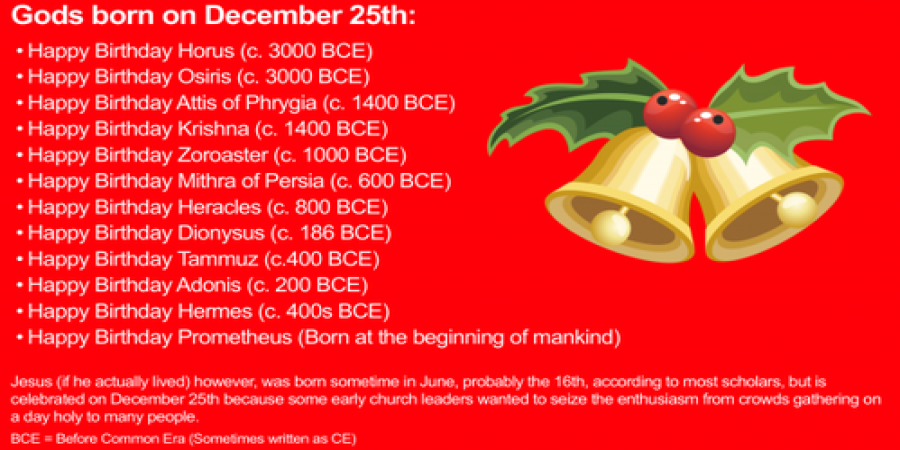

Other Gods Born on December 25: Myth and Misconception
The notion that multiple deities share a December 25th birthdate is a common misconception often used to draw comparisons between various religions and Christianity. While the idea might seem intriguing, the historical and mythological evidence doesn't support this claim. This article aims to delve into the origins of this misconception, examine the alleged "shared birthday" deities, and clarify the historical context surrounding December 25th as a significant date.
The Origin of the Misconception
The idea that several gods were born on December 25th likely stems from the early 20th century, when certain scholars and authors began to draw parallels between different mythologies and religious traditions. This notion gained traction in popular culture and has been perpetuated through various channels, including books, articles, and online forums. However, upon closer examination, the evidence for shared December 25th birthdays for these deities is largely unsubstantiated.
The Alleged "Shared Birthday" Deities
Several deities are often cited as sharing a December 25th birthday with Jesus Christ:
-
Horus (Egyptian): Horus, the falcon-headed god of the sky and kingship, was a central figure in Egyptian mythology. However, there is no historical evidence to suggest that his birth was celebrated on December 25th.
-
Mithras (Persian/Roman): Mithras, a god of light and contracts, was popular in the Roman Empire. While some scholars have suggested a connection between Mithras' birth and December 25th, the evidence is inconclusive and disputed.
-
Sol Invictus (Roman): Sol Invictus, the "Unconquered Sun," was a solar deity whose cult was established by Roman Emperor Aurelian in the 3rd century CE. While the festival of Sol Invictus was celebrated on December 25th, this was likely a later development and not the original date of his mythological birth.
-
Attis (Phrygian): Attis, a vegetation god associated with the cycle of death and rebirth, was worshipped in Phrygia and later in Greece and Rome. While some sources mention a festival associated with Attis' resurrection around the time of the winter solstice, there is no definitive evidence linking his birth to December 25th.
Historical Context of December 25th
The choice of December 25th as the date to celebrate Jesus' birth was not arbitrary. It was likely chosen in the 4th century CE by Christian leaders who sought to Christianize existing pagan festivals, particularly the Roman festival of Saturnalia, which took place in mid-December. By associating Jesus' birth with a time of celebration and light, early Christians aimed to facilitate the transition from paganism to Christianity.
Conclusion
The notion that multiple deities share a December 25th birthday is a misconception that has been perpetuated through various channels. While some deities have associations with the winter solstice or solar symbolism, there is no historical or mythological evidence to support the claim of a shared birthday on December 25th. The choice of this date to celebrate Jesus' birth was a deliberate decision by early Christians to align with existing cultural practices and facilitate the spread of Christianity.
References:
- History Channel: https://www.history.com/topics/christmas/history-of-christmas
- Encyclopedia Britannica: https://www.britannica.com/topic/Christmas
- Christianity Today:
Popular articles

Apr 11, 2024 07:40 PM

May 25, 2024 08:09 PM

Apr 11, 2024 07:22 PM

Apr 10, 2024 07:59 PM

Mar 14, 2024 07:53 PM
Comments (0)